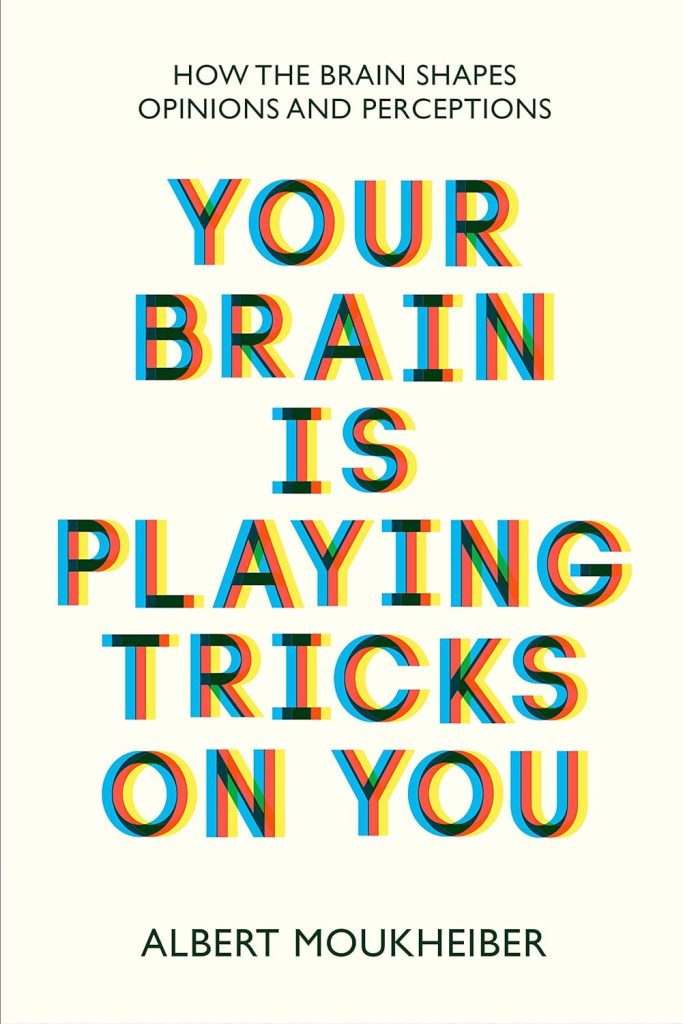FACULTY PUBLICATIONS

Your Brain Is Playing Tricks On You: How the Brain Shapes Opinions and Perceptions by Albert Moukheiber
It’s because we don’t see the world as it is, rather we reconstruct it in our mind. Reality is way too complex and multiple to be apprehended by our capacities of attention, which are quite limited, as well as our brain abilities. That is why our perception of the world is subjective and various elements influence the way we acquire knowledge and form opinions. Our brain is recreating the world in its own way – most of the time for our own good: how hard would it be if, before making a choice, we had to know about all the options available in a given situation? It would take us forever to choose an item of clothing in a store, or a meal in a restaurant! Luckily, our brain can estimate: even if it makes us imperfect and subject to illusion, delusion and error, it allows us to reconstruct the world as we know it, and live in it.
However, these very useful mechanisms can sometimes mislead us and have a rather negative impact on our actions, beliefs and opinions: when our brain behaves that way, we say it is biased. Albert Moukheiber gives us tips and tricks to fight against these cognitive biases – the first one being not to trust ourselves too much and to always doubt our thinking processes, especially in this era where social networks spread information like an epidemic. In this book, filled with multiple examples from our daily lives and psychosocial experiments, Moukheiber explores the building blocks of our perception, cognition and behaviour, which are involved in acquiring knowledge or forming opinions.

NOT LEAVING BEHIND REPORT
An assessment of the progress and impact of the UN’s International Widows Day in South Asia, Latin America and Sub-Saharan Africa, 2005-2023 by Saradamoyee Chatterjee
The United Nations (UN) has observed 23 June as International Widows Day since 2011. This day was initially launched by the Loomba Foundation in 2005 before being formally commemorated by the UN in 2011 (UN, n.d.). International Widows Day serves as a day of action to address the multi-layered challenges of widowed women, who endure heightened discrimination and marginalisation in many countries around the world.
This marginalisation has profound implications, not only for the widows and their dependents, but also for their communities and for gender rights progress more broadly. Despite the international commitment to achieve gender equality and empower all women and girls under the UN’s Sustainable Development Goal (SDG) 5, gender inequalities remain deeply entrenched across every aspect of modern society. Women continue to encounter barriers in accessing decent work, experience occupational segregation, endure discriminatory wage gaps, and shoulder a disproportionate share of unpaid care and domestic work.
